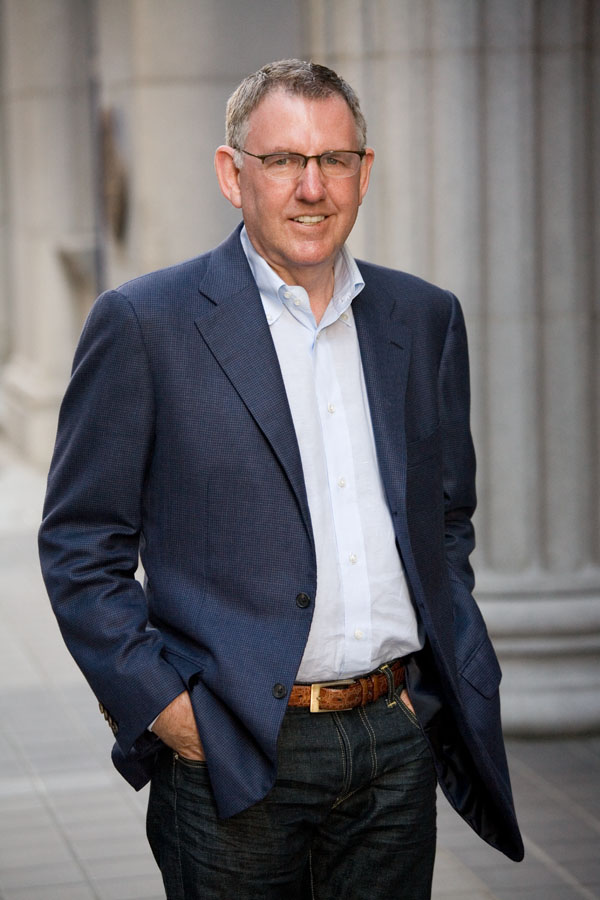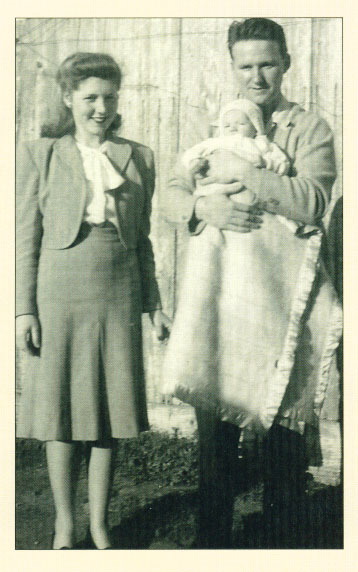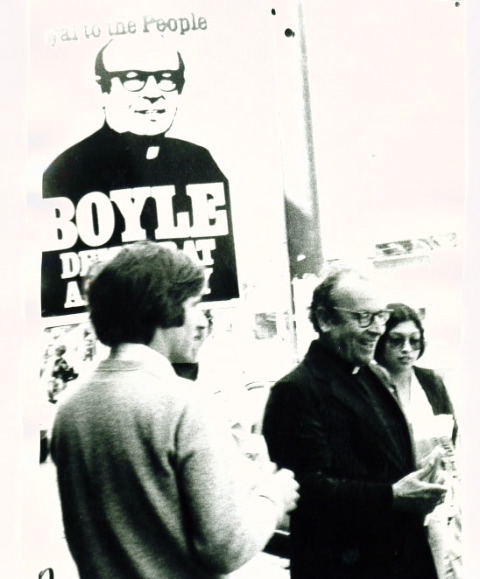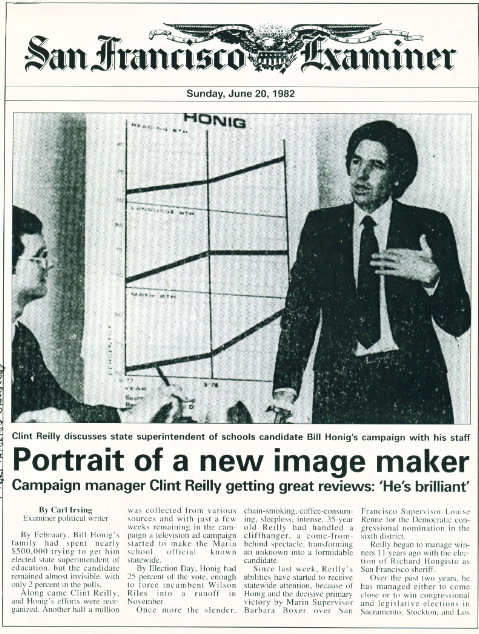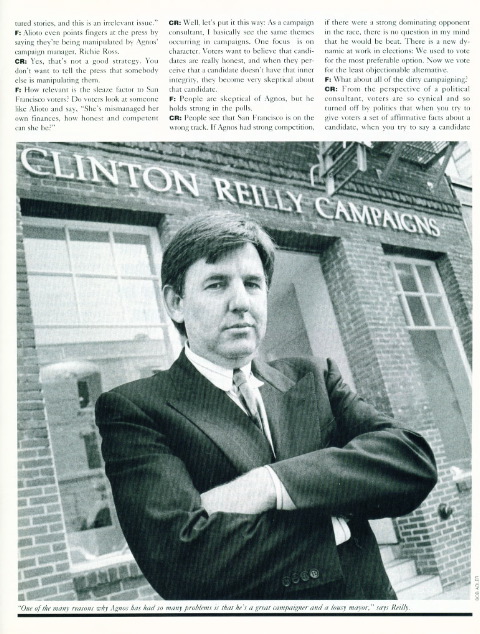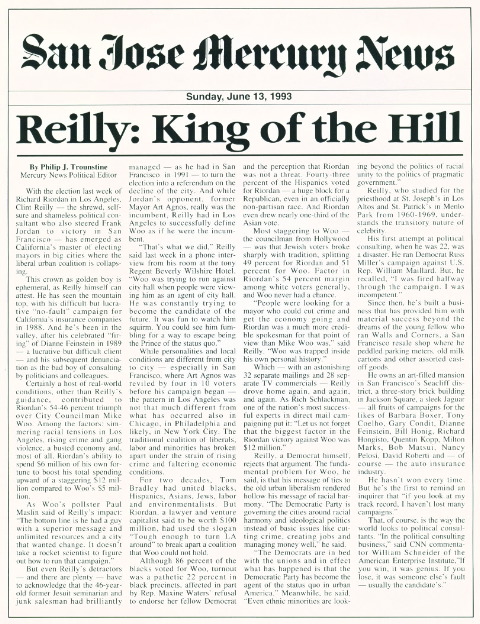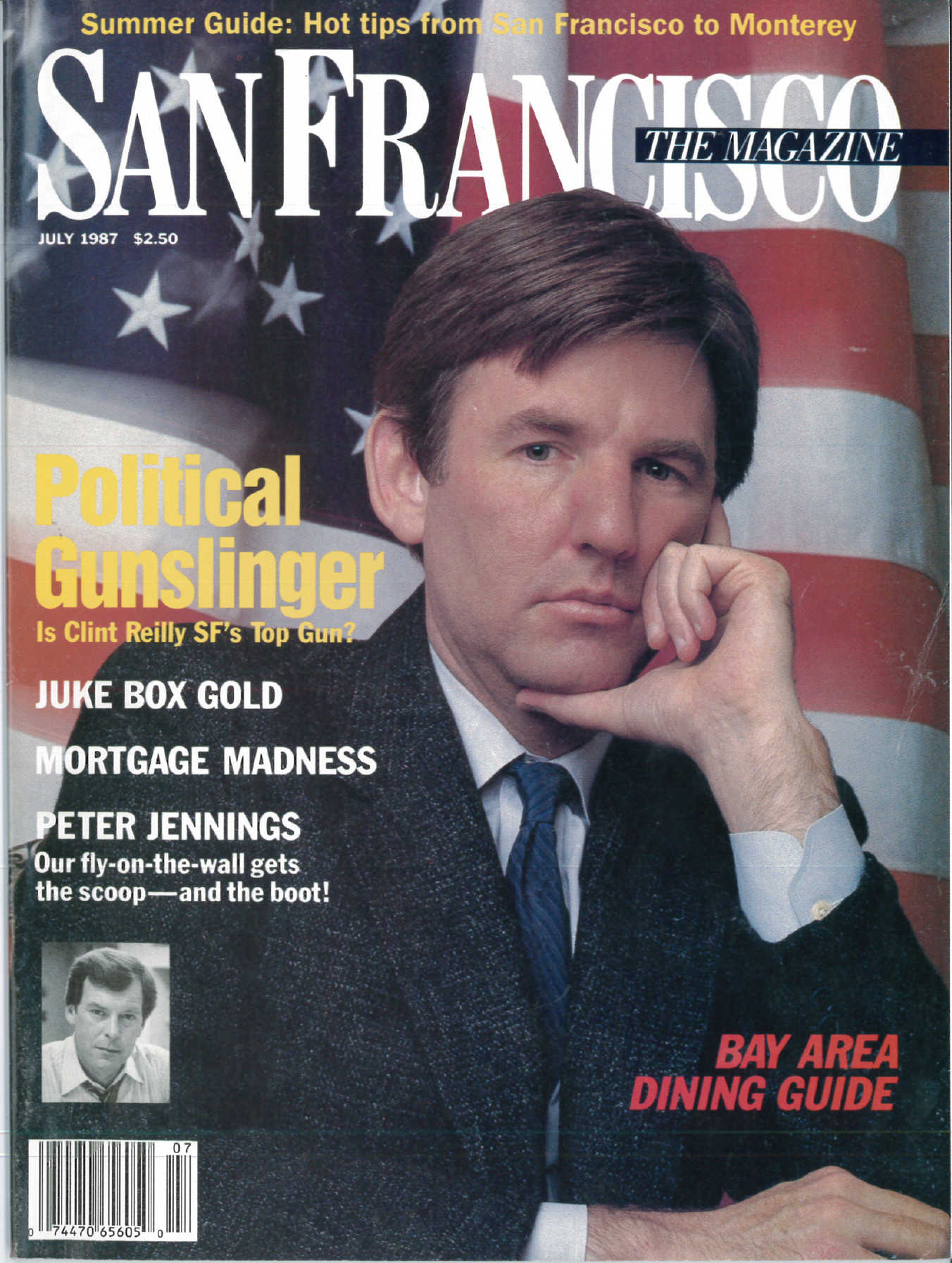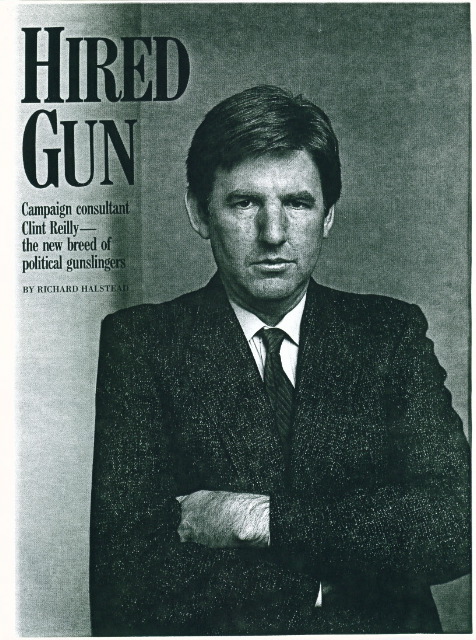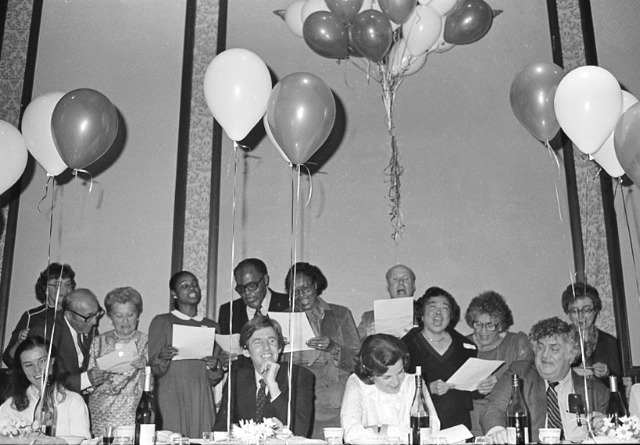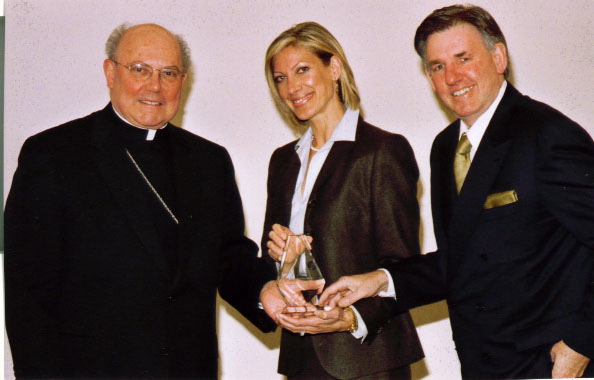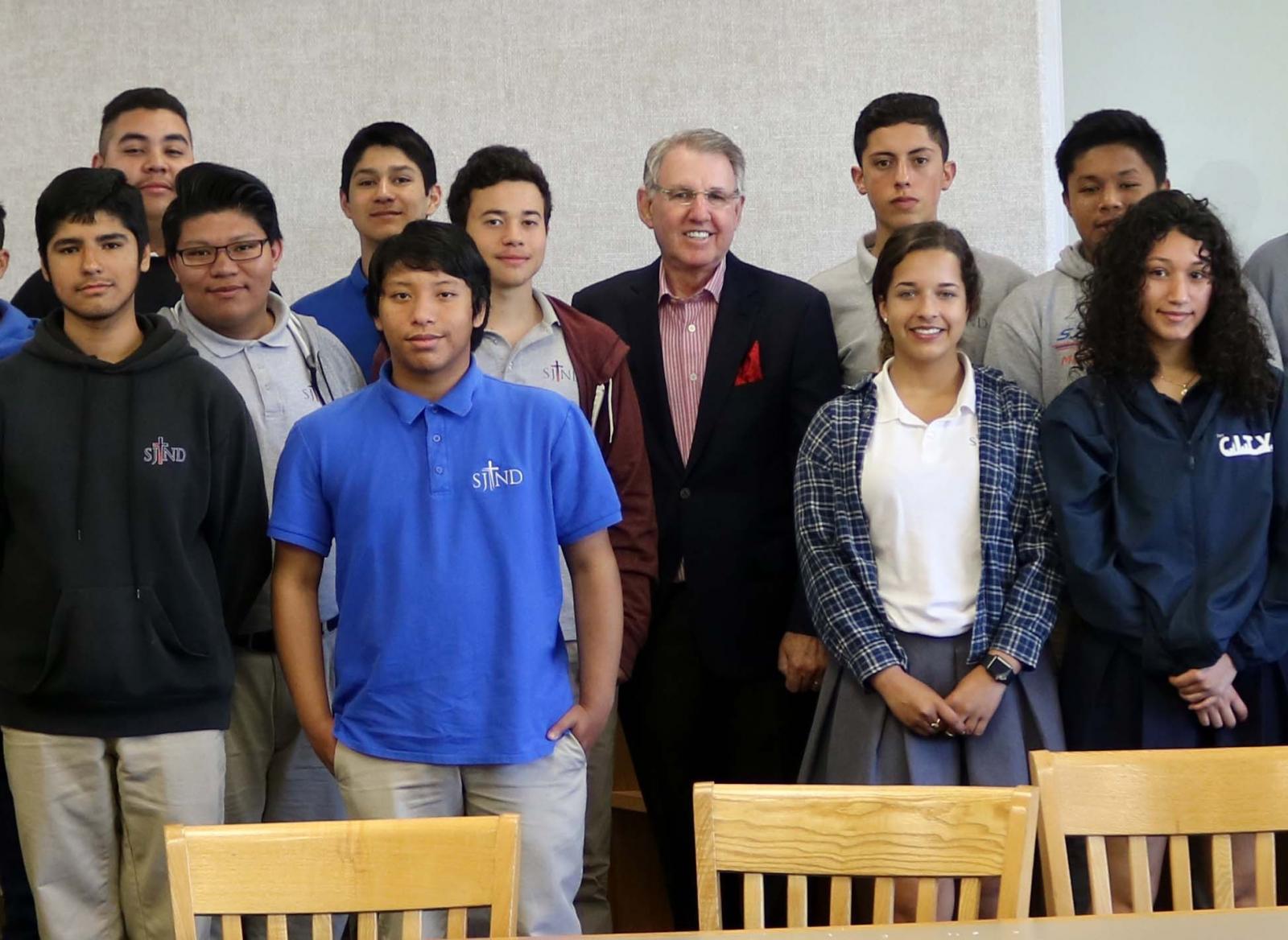Chapter 4:
An Expanding Business Legacy
Reilly left political consulting for good in 1995, the same year he purchased his flagship property—the landmark Merchants Exchange building—from Walter Shorenstein and the Swig family. Since then, Reilly has worked to return the Merchants Exchange to its former status as a premium corporate address, while simultaneously transforming the building into the nerve center of the City’s high-end social, political, philanthropic and corporate events.
Reilly now employs a wide breadth of professionals, from his long-tenured executive team, to chefs, publishers, event managers, accountants, operations experts, janitors, creative directors, sales managers, admin staff and security guards—nearly 150 in all—making the Merchants Exchange a hive of activity.
Most of the action takes place in and around the jaw-dropping Julia Morgan Ballroom, an architectural jewel that has hosted everyone from President Obama and Steve Jobs to Jane Goodall and Aung San Suu Kyi, among countless business, entertainment and philanthropic titans.
Reilly’s hospitality business accelerated in 2009 as events became fully-produced operations. The vertical business model—controlling every aspect of the customer experience to ensure consistency and quality throughout the organization—was a lesson learned during Reilly’s campaign days with printers and designers, and extended to the world of hospitality, where guest experience was paramount.
Food and beverage operations quickly became a major part of the company’s hospitality arm, executed by accomplished fine dining chefs like Chris Fernandez and Larry Finn. In the lower level of the building, the former Merchants Exchange Club lay dormant after nearly 100 years of activity as a premier men’s social club. Today, the reborn Merchants Exchange Club serves as a sister venue to the Ballroom, combining with its counterpart for a range of conferences, tradeshows, nonprofit galas and other events.
In 2009, with the economy spiraling and most businesses retrenching, Reilly launched Credo, a stylish Italian eatery that occupies the chic street-level space in his stately 360 Pine Street building. Nearly eight years later, Credo continues to serve the Financial District as one of the neighborhood’s hippest options in a thriving dining scene. Lunch hour brings a who’s-who of FiDi heavyweights, young up-and-comers, and the occasional celebrity, from Dwyane Wade to Archbishop Desmond Tutu.
Reilly’s hospitality business has expanded tenfold since 2009, but in 2016, he turned his attention back toward his roots—media and communications—and added another beloved San Francisco institution to his stable of them: the Nob Hill Gazette.
Acquiring the magazine, which has served as the publication of record for the City’s social and philanthropic scene for more than 40 years, added an exciting new dynamic to Reilly’s portfolio, leveraging his deep knowledge of the City, strong commitment to philanthropy and keen understanding of media and communications to rejuvenate yet another storied San Francisco brand under his stewardship.
Less than two years after taking the helm of the Gazette, Reilly launched the Nob Hill Gazette on the Peninsula, a sister publication to the cherished San Francisco magazine, providing exclusive content to the well-heeled, civically engaged audiences from Atherton to Los Altos and everywhere in between.
Reilly is equally active in the community. He is the former President of the Board of Directors for Catholic Charities of San Francisco and the founder and President of Bay Scholars, which currently provides support for nearly 400 disadvantaged youths attending private Catholic high schools. Reilly is a major contributor to the SFMOMA and a longtime supporter of programs like CORO, Salesian Boys and Girls Club, 826 Valencia, the UC Berkeley Institute for Governmental Studies, Summer Search and the Mission Dolores Academy, among many others.
It is through this lens that the full thrust of Reilly’s business enterprise can be best understood. It is less a story of individual success than one of organizational impact. A focus on community engagement and charitable giving runs throughout the company. From high-profile political, corporate and nonprofit events in his event facilities, to marquee NGO tenants such as the Asia Foundation, to the Nob Hill Gazette’s renewed commitment to the philanthropic and nonprofit community, the Clint Reilly organization reflects the priorities and direction of its founder.
Looking for more? Check out our archive of stories about Clint Reilly from around the web.

